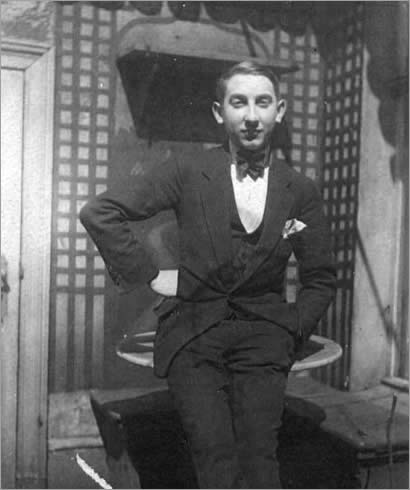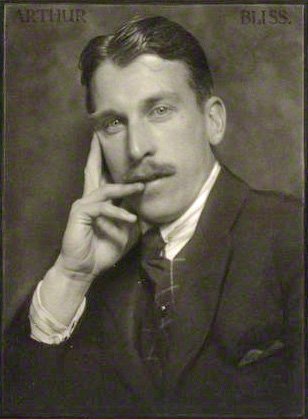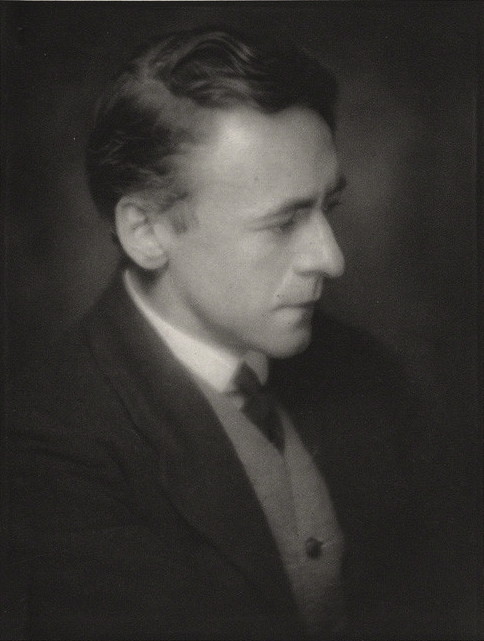|
1935 In British Music
This is a summary of 1935 in music in the United Kingdom. Events *February – At the suggestion of Frank Bridge, Benjamin Britten is invited to a job interview by the BBC's director of music Adrian Boult and his assistant Edward Clark. * 12 March – Jack Hylton makes his first recording since leaving the Decca label, for HMV. * 19 November – Kathleen Ferrier marries Albert Wilson; the marriage is never consummated. *''date unknown'' – Michael Tippett joins the British Communist Party. Popular music * " Fanlight Fanny", words & music by George Formby, Harry Gifford and Frederick E. Cliffe * "Men About Town", words & music by Noël Coward * "Mrs Worthington", words & music by Noël Coward * "The Canoe Song", by Mischa Spoliansky (sung by Paul Robeson in the film ''Sanders of the River'') * " Where the Arches Used To Be", by D. O'Connor and K. Russell, performed by Flanagan and Allen * "Who's Been Polishing The Sun", words & music by Noel Gay Classical music: new works *Ar ... [...More Info...] [...Related Items...] OR: [Wikipedia] [Google] [Baidu] |
United Kingdom
The United Kingdom of Great Britain and Northern Ireland, commonly known as the United Kingdom (UK) or Britain, is a country in Europe, off the north-western coast of the continental mainland. It comprises England, Scotland, Wales and Northern Ireland. The United Kingdom includes the island of Great Britain, the north-eastern part of the island of Ireland, and many smaller islands within the British Isles. Northern Ireland shares a land border with the Republic of Ireland; otherwise, the United Kingdom is surrounded by the Atlantic Ocean, the North Sea, the English Channel, the Celtic Sea and the Irish Sea. The total area of the United Kingdom is , with an estimated 2020 population of more than 67 million people. The United Kingdom has evolved from a series of annexations, unions and separations of constituent countries over several hundred years. The Treaty of Union between the Kingdom of England (which included Wales, annexed in 1542) and the Kingdom of Scotland in 170 ... [...More Info...] [...Related Items...] OR: [Wikipedia] [Google] [Baidu] |
Mischa Spoliansky
Mischa Spoliansky (28 December 1898 – 28 June 1985) was a Russian-born composer who made his name writing cabaret and revue songs in the Weimar Republic of the 1920s and early 1930s, before he was forced to emigrate to London in 1933 when Hitler rose to power. He stayed in Britain for the rest of his life, re-inventing himself as a composer of film scores.David Kershaw. "Spoliansky, Mischa", in ''Grove Music Online'' (2001) Early life and education Spoliansky was born into a Jewish, musical family in Białystok, then part of the Belostok Oblast of the Russian Empire. His father was an opera singer and his sister would later become a pianist and his brother Alexander was a cellist. After the birth of Mischa the family moved to Warsaw, and later Kalisz. After the early death of his mother, the family moved to Vienna. Spoliansky's early musical education in piano, violin and cello began at the age of five and was continued in Dresden under Professor Mark Guensberg. He made his ... [...More Info...] [...Related Items...] OR: [Wikipedia] [Google] [Baidu] |
Charles Williams (composer)
Charles Williams (8 May 1893 – 7 September 1978) was a British composer and conductor, contributing music to over 50 films. While his career ran from 1934 through 1968, much of his work came to the big screen as stock music and was therefore uncredited. Biography Williams was born in London as Isaac Cozerbreit in 1893. He began his career as a freelance violinist in theatres, cinemas and symphony orchestras and later studied composition with Norman O'Neill at the Royal Academy of Music. In 1933, he went to Gaumont British Films as composer and stayed there until 1939. He composed for many British films and radio shows and after the end of World War II, he became the conductor of the new Queen's Hall Light Orchestra. Later, he formed his own Concert Orchestra. He died in Findon Valley, Worthing, West Sussex, aged 85. Light music compositions He composed many orchestral pieces and marches for his ensembles, which were recorded in the "Mood Music" category of light music and du ... [...More Info...] [...Related Items...] OR: [Wikipedia] [Google] [Baidu] |
Ralph Vaughan Williams
Ralph Vaughan Williams, (; 12 October 1872– 26 August 1958) was an English composer. His works include operas, ballets, chamber music, secular and religious vocal pieces and orchestral compositions including nine symphonies, written over sixty years. Strongly influenced by Tudor music and English folk-song, his output marked a decisive break in British music from its German-dominated style of the 19th century. Vaughan Williams was born to a well-to-do family with strong moral views and a progressive social life. Throughout his life he sought to be of service to his fellow citizens, and believed in making music as available as possible to everybody. He wrote many works for amateur and student performance. He was musically a late developer, not finding his true voice until his late thirties; his studies in 1907–1908 with the French composer Maurice Ravel helped him clarify the textures of his music and free it from Music of Germany, Teutonic influences. Vaughan Williams i ... [...More Info...] [...Related Items...] OR: [Wikipedia] [Google] [Baidu] |
William Walton
Sir William Turner Walton (29 March 19028 March 1983) was an English composer. During a sixty-year career, he wrote music in several classical genres and styles, from film scores to opera. His best-known works include ''Façade'', the cantata ''Belshazzar's Feast'', the Viola Concerto, the First Symphony, and the British coronation marches ''Crown Imperial'' and '' Orb and Sceptre''. Born in Oldham, Lancashire, the son of a musician, Walton was a chorister and then an undergraduate at Christ Church, Oxford. On leaving the university, he was taken up by the literary Sitwell siblings, who provided him with a home and a cultural education. His earliest work of note was a collaboration with Edith Sitwell, ''Façade'', which at first brought him notoriety as a modernist, but later became a popular ballet score. In middle age, Walton left Britain and set up home with his young wife Susana on the Italian island of Ischia. By this time, he had ceased to be regarded as a moderni ... [...More Info...] [...Related Items...] OR: [Wikipedia] [Google] [Baidu] |
Joseph Holbrooke
Joseph Charles Holbrooke (5 July 18785 August 1958) was an English composer, conductor, and pianist. Life Early years Joseph Holbrooke was born Joseph Charles Holbrook in Croydon, Surrey. His father, also named Joseph, was a music hall musician and teacher, and his mother Helen was a Scottish singer. He had two older sisters (Helen and Mary) and two younger brothers (Robert and James), both of whom died in infancy. The family travelled around the country, with both parents participating in musical entertainments. Holbrooke's mother died in 1880 from tuberculosis, leaving the family in the care of Joseph senior, who settled the family in London and took the position of pianist at Collins' Music Hall, Islington, and later at the Bedford Music Hall. Holbrooke was taught to play the piano and the violin by his father, who was not averse to the use of violence as a method of instruction, and played in music halls himself before entering the Royal Academy of Music as a student in 18 ... [...More Info...] [...Related Items...] OR: [Wikipedia] [Google] [Baidu] |
George Dyson (composer)
Sir George Dyson (28 May 188328 September 1964) was an English musician and composer. After studying at the Royal College of Music (RCM) in London, and army service in the First World War, he was a schoolmaster and college lecturer. In 1938 he became director of the RCM, the first of its alumni to do so. As director he instituted financial and organisational reforms and steered the college through the difficult days of the Second World War. As a composer Dyson wrote in a traditional idiom, reflecting the influence of his teachers at the RCM, Hubert Parry and Charles Villiers Stanford. His works were well known during his lifetime but underwent a period of neglect before being revived in the late 20th century. Life and career Early years Dyson was born in Halifax, West Yorkshire, Halifax, Yorkshire, the eldest of the three children of John William Dyson, a blacksmith, and his wife, Alice, ''née'' Greenwood, a weaver.Foreman, Lewis"Dyson, Sir George (1883–1964)" Oxford Dictiona ... [...More Info...] [...Related Items...] OR: [Wikipedia] [Google] [Baidu] |
Arthur Bliss
Sir Arthur Edward Drummond Bliss (2 August 189127 March 1975) was an English composer and conductor. Bliss's musical training was cut short by the First World War, in which he served with distinction in the army. In the post-war years he quickly became known as an unconventional and Modernism (music), modernist composer, but within the decade he began to display a more traditional and romantic side in his music. In the 1920s and 1930s he composed extensively not only for the concert hall, but also for films and ballet. In the Second World War, Bliss returned to England from the US to work for the BBC and became its director of music. After the war he resumed his work as a composer, and was appointed Master of the Queen's Music. In Bliss's later years, his work was respected but was thought old-fashioned, and it was eclipsed by the music of younger colleagues such as William Walton and Benjamin Britten. Since his death, his compositions have been well represented in recordin ... [...More Info...] [...Related Items...] OR: [Wikipedia] [Google] [Baidu] |
Symphony No
A symphony is an extended musical composition in Western classical music, most often for orchestra. Although the term has had many meanings from its origins in the ancient Greek era, by the late 18th century the word had taken on the meaning common today: a work usually consisting of multiple distinct sections or movements, often four, with the first movement in sonata form. Symphonies are almost always scored for an orchestra consisting of a string section (violin, viola, cello, and double bass), brass, woodwind, and percussion instruments which altogether number about 30 to 100 musicians. Symphonies are notated in a musical score, which contains all the instrument parts. Orchestral musicians play from parts which contain just the notated music for their own instrument. Some symphonies also contain vocal parts (e.g., Beethoven's Ninth Symphony). Etymology and origins The word ''symphony'' is derived from the Greek word (), meaning "agreement or concord of sound", "concert of ... [...More Info...] [...Related Items...] OR: [Wikipedia] [Google] [Baidu] |
Arnold Bax
Sir Arnold Edward Trevor Bax, (8 November 1883 – 3 October 1953) was an English composer, poet, and author. His prolific output includes songs, choral music, chamber pieces, and solo piano works, but he is best known for his orchestral music. In addition to a series of symphonic poems, he wrote seven symphonies and was for a time widely regarded as the leading British symphonist. Bax was born in the London suburb of Streatham to a prosperous family. He was encouraged by his parents to pursue a career in music, and his private income enabled him to follow his own path as a composer without regard for fashion or orthodoxy. Consequently, he came to be regarded in musical circles as an important but isolated figure. While still a student at the Royal Academy of Music Bax became fascinated with Ireland and Celtic culture, which became a strong influence on his early development. In the years before the First World War he lived in Ireland and became a member of Dublin literary ... [...More Info...] [...Related Items...] OR: [Wikipedia] [Google] [Baidu] |
Noel Gay
Noel or Noël may refer to: Christmas * , French for Christmas * Noel is another name for a Christmas carol Places * Noel, Missouri, United States, a city *Noel, Nova Scotia, Canada, a community * 1563 Noël, an asteroid *Mount Noel, British Columbia, Canada People *Noel (given name) * Noel (surname) Arts, entertainment, and media Music *Noel, another term for a pastorale of a Christmas nature * ''Noël'' (Joan Baez album), 1966 * ''Noël'' (Josh Groban album), 2007 * ''Noel'' (Noel Pagan album), 1988 * ''Noël'' (The Priests album), 2010 * ''Noel'' (Phil Vassar album), 2011 * ''Noel'' (Josh Wilson album), 2012 *''Noel'', 2015 Christmas album by Detail *"The First Noel", a traditional English Christmas carol *Noël (singer) (active late 1970s), American disco singer *Noel (band), a South Korean group Television * ''Noel'' (TV series), a Philippine drama * "Noël" (''The West Wing''), a 2000 television episode Other uses in arts, entertainment, and media * ''Noel' ... [...More Info...] [...Related Items...] OR: [Wikipedia] [Google] [Baidu] |
Flanagan And Allen
Flanagan and Allen were a British singing and comedy double act most active during the 1930s and 1940s. Its members were Bud Flanagan (1896 – 1968, born Chaim Weintrop) and Chesney Allen (1894–1982). They were first paired in a Florrie Forde revue, and were booked by Val Parnell to appear at the Holborn Empire in 1929. Career As music hall comedians, they would often feature a mixture of comedy and music in their act; this led to a successful recording career as a duo and roles in film and television. Just prior to and throughout the Second World War they appeared in several films helmed by Marcel Varnel and John Baxter. Flanagan and Allen were both also members of the Crazy Gang and worked with that team for many years concurrently with their double-act career. Flanagan and Allen's songs featured the same, usually gentle, humour for which the duo were known in their live performances, and during the Second World War they reflected the experiences of ordinary people dur ... [...More Info...] [...Related Items...] OR: [Wikipedia] [Google] [Baidu] |





